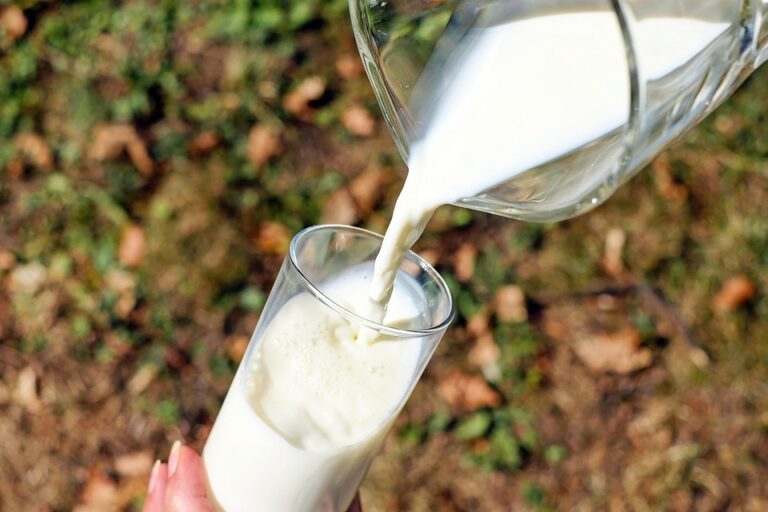Nut Milk: A Creamy Revolution in Dairy-Free Living
In recent years, nut milk has emerged as a frontrunner in the dairy-free landscape, capturing the hearts—and taste buds—of health-conscious consumers and those with dietary restrictions. This versatile alternative to cow’s milk provides not only a creamy texture and delicious flavor but also offers a wealth of health benefits. Let’s delve into the world of nut milk and explore how it’s revolutionizing dairy-free living.
What is Nut Milk?
Nut milk is a plant-based beverage made by blending nuts or seeds with water and straining the mixture. Common types of nut milk include almond, cashew, macadamia, and hazelnut milk. These alternatives have emerged due to growing consumer demand for dairy-free options, whether for lactose intolerance, vegan diets, or simply a preference for plant-based food.
The Rise of Nut Milk
According to a report from MarketWatch, the global nut milk market was valued at approximately $3.76 billion in 2021 and is projected to reach around $13 billion by 2030, growing at a compound annual growth rate (CAGR) of 14.2% from 2022. This staggering growth can be attributed to the increasing awareness of healthy eating, environmental sustainability, and ethical consumption.
Why Choose Nut Milk?
Nut milk offers a variety of reasons for consumers to make the switch from traditional dairy:
- Lactose-Free: A significant number of people are lactose intolerant, making nut milk a viable alternative.
- Lower Caloric Content: Many nut milks, particularly almond milk, have fewer calories than whole dairy milk.
- Nutritional Benefits: Nut milk is often enriched with vitamins and minerals, such as calcium and vitamin D, making it a healthful addition to your diet. For instance, almond milk contains vitamin E, an antioxidant that supports skin and heart health.
- Variety of Flavors: With options like hazelnut and cashew milk, nut milk caters to diverse palates, allowing for culinary creativity.
The Nutritional Breakdown
An analogy that simplifies understanding the nutrition of nut milk is comparing it to a basic smoothie. Just as you can customize a smoothie with various fruits and supplements, nut milk can be tailored with additional nutrients. For instance, unsweetened almond milk typically contains just 30 calories per cup, compared to the average 150 calories in whole cow’s milk. Moreover, a cup of almond milk usually contains about 1 gram of protein, whereas cow’s milk has about 8 grams, highlighting the importance of balancing it with other protein sources.
How to Use Nut Milk in Your Daily Life
Integrating nut milk into your daily routine is simple and versatile. Here are some suggestions:
- Morning Coffee: Substitute your usual milk with nut milk for a creamier, plant-based beverage.
- Smoothies and Shakes: Use nut milk in your smoothies to enhance flavor without adding excessive calories.
- Baking: Incorporate nut milk into recipes for cakes and muffins; it can often replace dairy milk in any recipe.
- Cooking: Use nut milk in savory dishes like sauces or soups for added flavor.
Popular Nut Milk Varieties
Here are some popular nut milk varieties and their unique characteristics:
- Almond Milk: Light and slightly sweet. Ideal for coffee and smoothies.
- Cashew Milk: Creamy texture makes it perfect for sauces and soups.
- Hazelnut Milk: Nutty flavor that compliments chocolates and desserts.
- Macadamia Milk: Rich and buttery, excellent for creamy beverages.
Environmental and Ethical Considerations
The rise of nut milk aligns with growing concerns about dairy farming’s environmental impact. According to the Food and Agriculture Organization (FAO), dairy production is responsible for 4% of global greenhouse gas emissions. In contrast, nut crops like almonds and cashews require less land and water than traditional dairy farming. However, consumers should remain aware of sourcing and sustainability practices when choosing nut milk products.
Conclusion
As the plant-based trend continues to flourish, nut milk stands out as a creamy and delicious option for those seeking dairy-free alternatives. With its wave of diverse flavors, nutritional benefits, and environmental consciousness, it’s clear that nut milk is not just a passing trend; it’s a creamy revolution in dairy-free living.
For those ready to dive deeper into the benefits and recipes involving nut milk, check out our related articles on 10 Delicious Dairy-Free Smoothies and The Nutritional Benefits of a Plant-Based Diet.
For more on the latest trends and insights into dairy alternatives, visit Food & Agriculture Organization (FAO) and MarketWatch for reputable sources that support this growing trend.
Disclaimer: The content provided in this article is for informational purposes only and does not constitute professional advice. Buzzo.live is not liable for the accuracy or content of this article.


